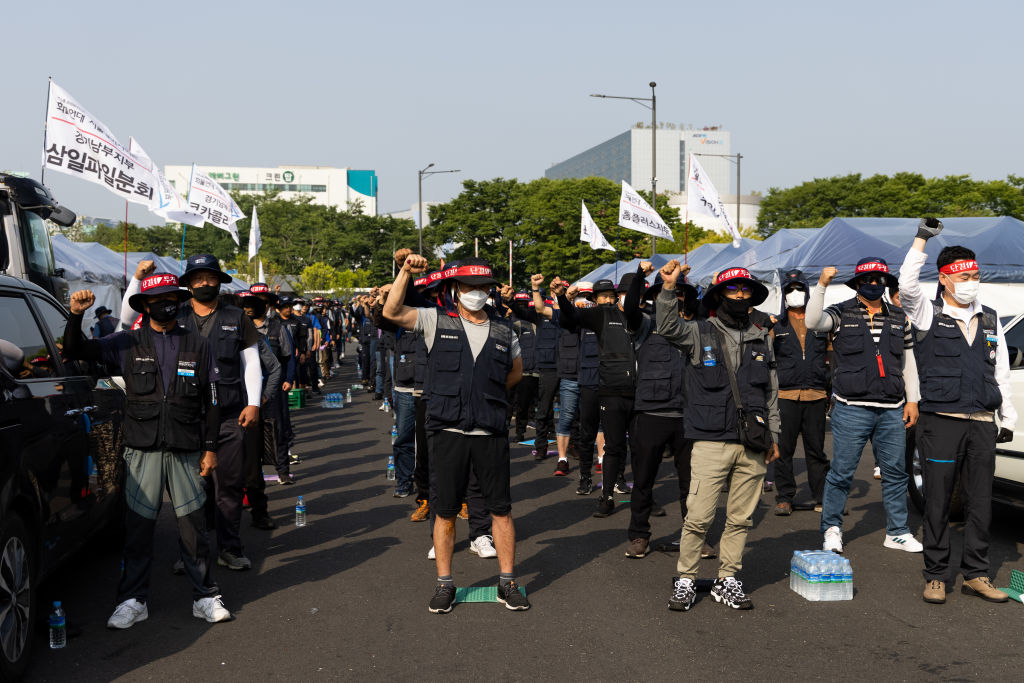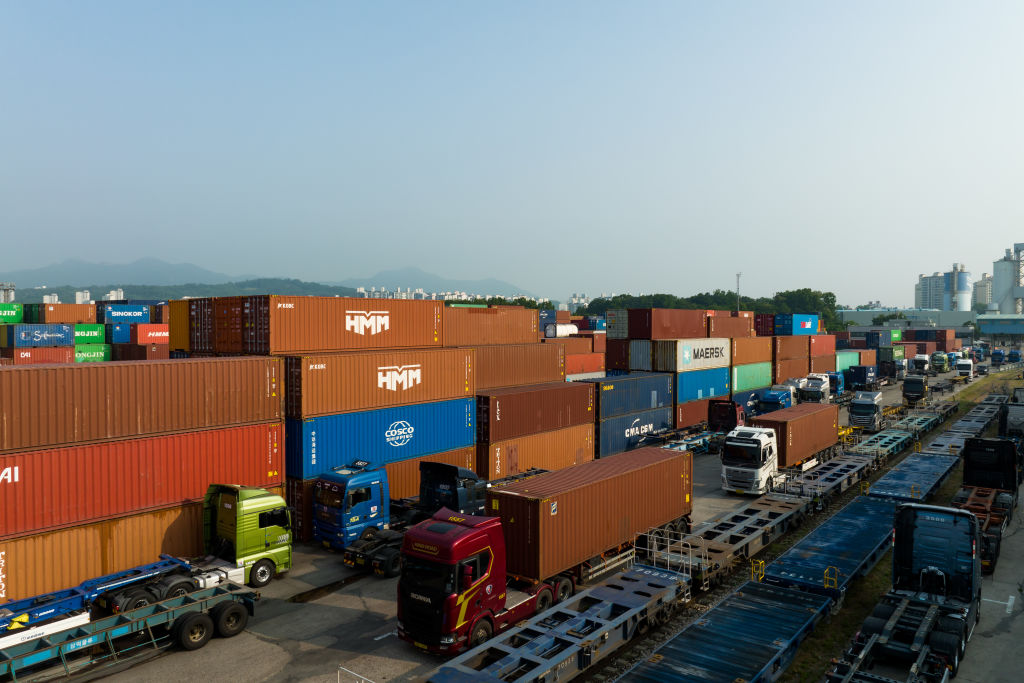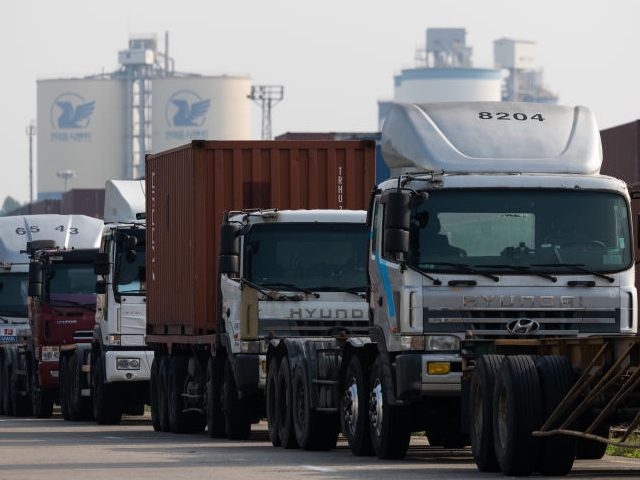Friday marked the fourth day of a growing strike by South Korean truckers, who are protesting over their wages and the rising cost of fuel.
The strike has become a significant threat to the semiconductor and petrochemical industries, as well as cross-country and international shipping.
The strike began on Tuesday, as roughly 6,500 South Korea’s unionized truckers demanded government assistance to raise their wages because rising fuel prices are eating into profits. The police made some arrests as striking truckers blocked access to factories and freight depots.
Early targets for the striking truckers included industries that rely on the swift delivery of raw materials for “just-in-time” manufacturing – prominently including South Korean auto giant Hyundai, which announced it would temporarily shutter four of its factories on Thursday.
Hyundai’s sister company Kia resorted to asking its employees to hop into finished cars and drive them to shipping yards one at a time rather than moving them in bulk with car carriers.
Steel and cement production were hit hard as well. Concrete factories shut down, while steelworks reported thousands of tons of product piled up and awaiting delivery. The Korea Cement Association reported an astonishing 90 percent reduction in output since the strike began.
On Friday, the truckers escalated their strike and shifted targets, vowing to shut down the vital semiconductor and petrochemical industries. Meanwhile, the famed ports of Busan and Incheon reported dramatic reductions in container freight traffic.
At least a thousand more truckers joined the strike by Friday, but the strikers still represent only about a third of union members and a very small fraction of South Korea’s largely non-unionized trucking industry. The Cargo Truckers Solidarity Union on Friday claimed the total number of strikers is larger than the government will admit and includes a fair number of non-unionized truckers who are walking off the job in solidarity.

Truck drivers and members of the Korean Confederation of Trade Unions shout slogans during a demonstration in front of the Uiwang Inland Container Depot in Uiwang, South Korea, on Friday, June 10, 2022. (SeongJoon Cho/Bloomberg via Getty Images)

A line of trucks parked as a protest at the Uiwang Inland Container Depot in Uiwang, South Korea, on Friday, June 10, 2022. (SeongJoon Cho/Bloomberg via Getty Images)
South Korean President Yoon Suk-yeol is striving to remain neutral in the dispute, which he said should be “resolved through dialogue” between truckers and their employers.
“But under no circumstance will people accept violent actions that break the law in a law-governed country,” Yoon added in remarks to reporters on Thursday, alluding to the dozen or so union truckers who have been arrested for interfering with shipping operations.
Yoon reiterated his neutral stance on Friday amid mounting pressure to intervene, as both his constituents and international observers grow nervous about the threat to already-overstressed supply chains for vital products.
“Only when the government sticks to the law and principles and remains neutral, do I believe labor and management will be able to build the capacity to freely resolve their issues on their own,” the South Korean president explained.
“I have a lot of doubts about whether the government’s position or intervention until now was desirable for the establishment of labor-management relations and culture,” he said, hinting that a line might soon be crossed.
Of course, some of Yoon’s critics think he should intervene to give the truckers what they want, not crack down on their strike. Yoon dismissed accusations he is “hostile” to labor by asking, “Don’t you think someone who is hostile toward laborers would not be able to become a politician?”
Sookmyung Women’s University economics professor Shin Se-don told Reuters on Friday that the government should help truckers cope with their diesel fuel dilemma.
“The government needs to review the union’s demands. They don’t need to accept them all, but I think they could make the situation a bit easier if they could consider giving out subsidies so truckers can deal with soaring fuel prices,” Shin said.
Next week could be decisive for the strike, as some companies warned they might be forced to take dire emergency measures, while a union official told Reuters the union “ran out of funds to finance the strike on Thursday and that it was unlikely that the strike could last another 10 days.”

COMMENTS
Please let us know if you're having issues with commenting.